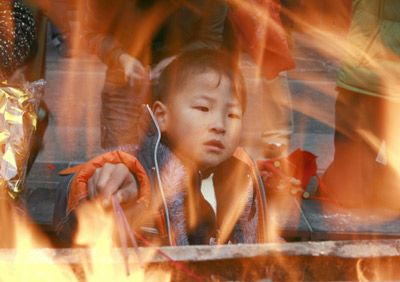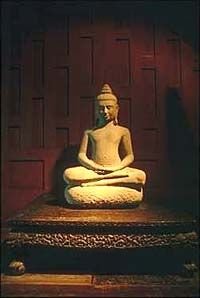The idea of secularized, new age karma is having its moment in the limelight. Newspapers and magazines use the word to spice up headlines or subtitles with colorful flair. Restaurants plaster their tip jars with signs promising good karma for only a dollar or two. Singers ponder over the power of a vaguely vindictive karma in songs like "Instant Karma" and "Karma." And according to the Social Security Administration, "Karma" even made it into the top 1,000 baby names for girls in 2006 [source: SSA]. But what is karma, and how did it get transplanted from Eastern religion to Western pop culture?
Advertisement
Karma is a central concept in Eastern religions like Hinduism, Buddhism, Sikhism and Jainism. The word "karma" has its roots in the Sanskrit word "karman," which means "act." In general, it is believed that actions affect the quality of life and the quality of future lives. Good deeds create good karma and evil deeds create negative karma. Karma's effect can manifest immediately, later in life or after multiple lifetimes. Some religions view karma as the law that governs reincarnation. Others believe that karma is actual particulate matter, something that gets stuck to the soul and must be removed through acts of piety.
In the West, the relatively modern idea of karma is not so much a spiritual reality as type of luck influenced by deeds. It's an appealing attempt to influence fortune -- something seemingly beyond our control -- with definite action. Most people would agree that it's reasonable enough to believe that good behavior merits a reward and bad behavior warrants punishment. Karma is also a convenient way to explain ostensibly random hardships. In a rational age, karma is a popular and fairly legitimatized form of superstition, unlike its closely related partner, reincarnation.
In this article, we'll learn about karma in Eastern religions and philosophies and in Western popular culture.
Advertisement




